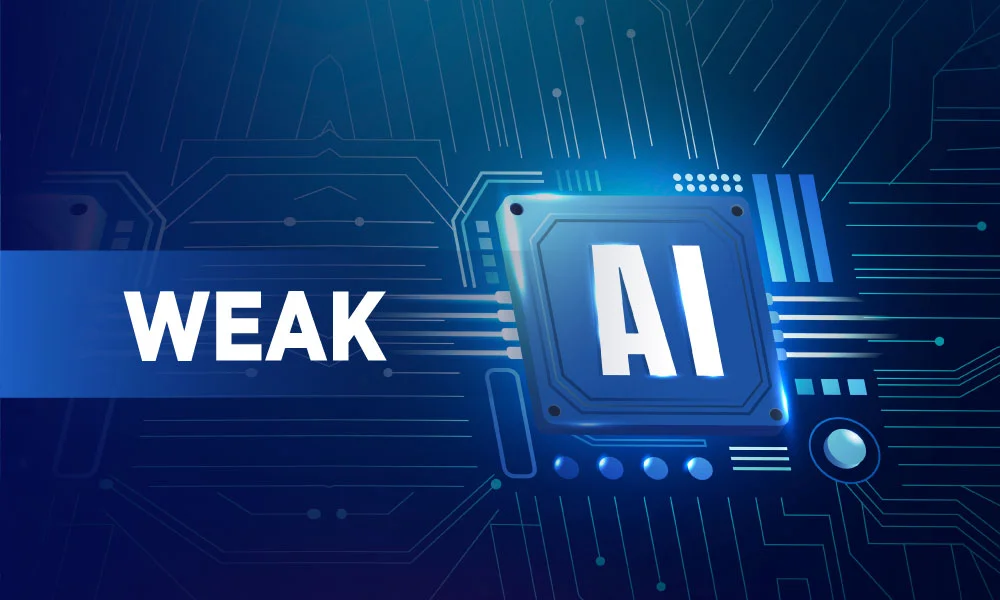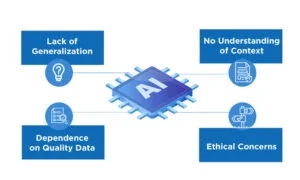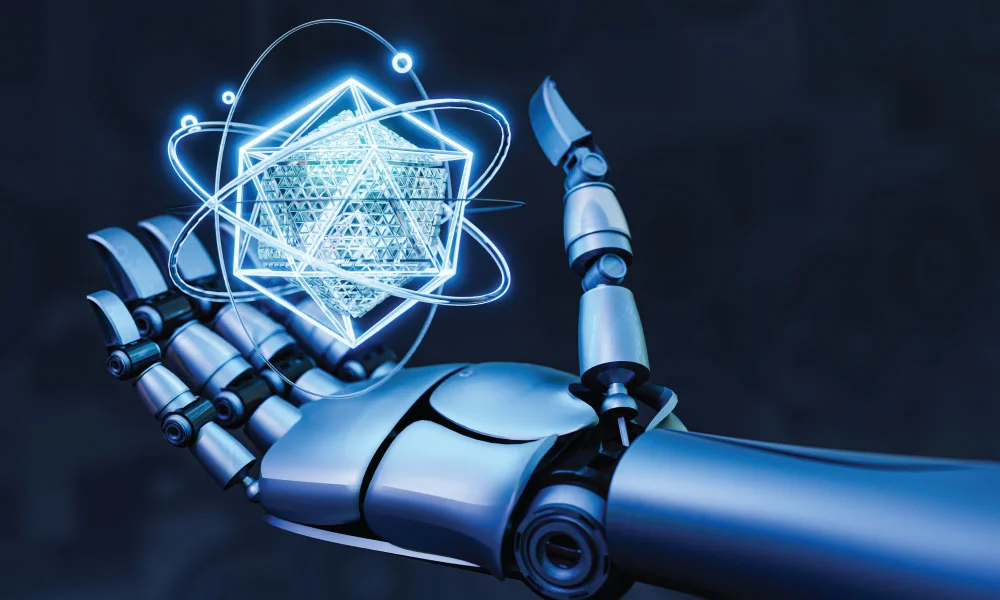Artificial Intelligence, or AI, is a term we hear everywhere these days, but many people don’t know that there are different types of AI. One important type is called weak AI, or Narrow AI. This kind of AI is designed to do specific tasks, like helping us find information or recommending movies. While it might not think like a human, weak artificial intelligence is all around us and plays a big role in our daily lives. In this blog, we will explore what narrow AI is, how it works, and its strengths and weaknesses so you can better understand its impact in our world.
What is Weak Artificial Intelligence?
Weak AI or narrow AI is a system that is designed to perform specific tasks. It completes the given task as per given instructions. However, strong AI is capable of performing the same way as humans do. It is meant to copy the abilities of the human mind.
According to a published report in August 2023, it is predicted that by 2025, 80% of support organizations and customer service will use some form of generative AI technology to enhance customer experience (CX) and agent productivity.
Characteristics of Weak AI
- Task-specific: Narrow AI is built for specific applications, such as language translation or recognizing images.
- No Self-awareness: These systems are not conscious and do not have any human emotions.
- Dependence on Data: Narrow AI depends on the provided data and algorithms so that it can function effectively.
- Limited Scope: Unlike human intelligence, which can adapt to various situations, weak AI operates within a narrow context.
Examples of Weak Artificial Intelligence
We see huge applications of weak AI in our everyday lives, which we don't notice, such as the following examples:
Virtual Assistants: Siri, Alexa, and Google Assistant are some of the most popular features of the narrow AI group. They perform specific tasks such as setting reminders, playing specific music, or asking some questions based on your known response. It does not understand things and only works within stated capabilities.
Recommendation Systems: Netflix, Amazon, and other such platforms use narrow AI to analyze user behavior and preferences so that they can provide personalized recommendations. These systems use algorithms to suggest content but do not understand the reason why the user chose that particular context. As per source, 80% of the content watched on Netflix is driven by personalized recommendations.
Image and Speech Recognition: Technologies such as Facial Recognition and Voice Recognition are narrow AI that identify and classify images or transcribe speech. Although these applications might be nearly error-free for some tasks, they don't know what they are processing.
Game AI: In video games, AI opponents are provided with specific strategies. These characters can copy intelligent behavior but are limited to the rules and scenarios that developers have created for them.
Limitations of Weak Artificial Intelligence
Though weak AI is useful, it has certain limitations as follows:
- Lack of Generalization: Narrow AI systems are unable to transfer knowledge from one domain to another.
- Dependence on Quality Data: Narrow AI basically depends on the quality and volume of data. Inferior data can result in ineffective predictions and results.
- No Understanding of Context: Narrow AI lacks contextual knowledge, which makes it challenging to interpret complex human interactions. This creates misunderstandings in communication.
- Ethical Concerns: The deployment of narrow AI raises ethical questions regarding privacy, bias, and decision-making. For example, biased training data can lead to discriminatory outcomes in hiring algorithms.
The Future of Weak AI
While narrow AI has its limitations, its potential for growth and innovation is so vast. With the rising technological advances, improvements in algorithms, data processing, and user interfaces are expected. However, it is important to address ethical considerations with responsible development.
Final Words!
Weak Artificial Intelligence is a highly influential tool that has transformed most industries and other parts of life. By understanding the capabilities and limitations of AI, we can better direct the future of AI technology. As we continue to develop and integrate narrow AI into our lives, we should use AI responsibly considering ethical implications.
In summary, even though weak artificial intelligence does not think like humans, it clearly affects our world and will be important in shaping the future of technology.
To know more about AI, explore KnowledgeNile!
Recommended For You:






